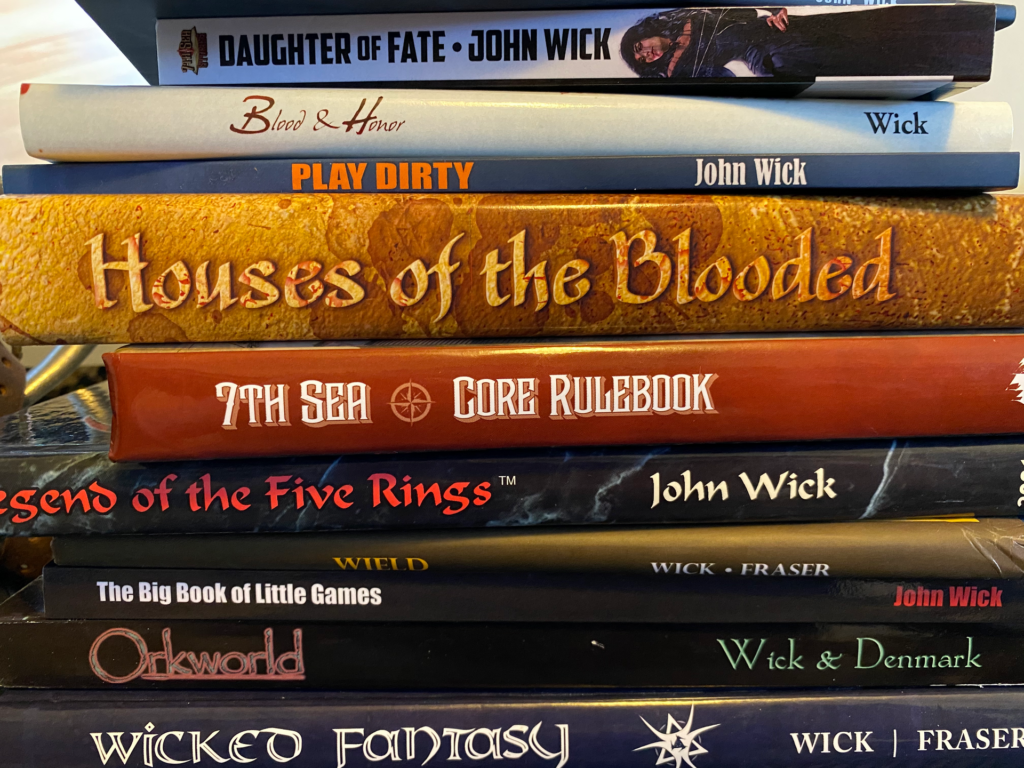
Unreview Rules:
- I have to like it,
- I have to pay for it,
- I do my best to use E-Prime.
Jennifer and I were married once. We live different lives now, but we keep up with each other, send book and movie recommendations, chat about this and that. She loves a good ghost story, and has exceptional taste, so when she told me to see The Witch, I knew I should check it out. When I was done, we chatted for an hour, talking about the different implications of the ending.
That started me on a binge of movies that I liked to call “new horror.” They all seemed to have the same philosophy: lots of mood, beautifully shot, absolutely terrifying, but no jump scares. Because I hate jump scares. They’re easy and cheap and predictable. What I want is to feel the horror of the movie long after the lights come back up. The Witch gave me that. All the way through the film, I felt the tension I saw on the screen, creeping under my skin. And the ending… just floored me. The whole movie was a build up to the final scene. That final shot. I was weeping. I was terrified. The film accomplished its goal.
(When I talked to my friend Jaz Colbath about it, they told me, “I love that movie! And it has a happy ending!” I’m not going to tell you why they think it’s a happy ending—that would spoil the ending, and you should absolutely see The Witch—but when they told me, I laughed so hard, I almost choked.)
Jennifer’s second suggestion, The Blackcoat’s Daughter, found me trembling and weeping at the end as well. It Follows sent a cold shiver down my spine, amazed at how easily it made me feel alone and vulnerable. I stumbled on Happy Death Day which left me both scared and laughing. And I liked this trend. A new kind of horror movie, unreliant on cheap scares, but long, deep creeps aimed at my heart.
When I heard the director of The Witch, Robert Eggers, was working on another film, I got excited. Out of all the new horror I watched, The Witch stuck with me more than the others. When I heard the movie was inspired by The Smalls Lighthouse Tragedy, I could not wait. And tonight, I sat in a dark theater of strangers (more full than I expected), and watched The Lighthouse.
I have no intention of trying to tell you what the film is about or even what happens. I don’t want to tell you anything. I’m loathe to tell you even simple facts about the film, such as Eggers shooting it in black and white with a perfectly square ratio (rather that widescreen), which adds to the authenticity of watching it. The Lighthouse doesn’t feel like a film, but a journal entry or a window into the event, and both elements add to the claustrophobia the characters experience and Eggers wants you to feel as well. No jump scares. No seemingly immortal maniacs with masks or costumes. Just two men with disparate tempers on a small island for weeks with no other company and nothing but painful, exhausting, back-breaking work and what happens when one (or both) of them start to crack.
The performances from the two leads kept me on the edge of my seat. I expected no less from Willem Dafoe, but Robert Pattinson really stood out to me. Both bring an authenticity that made me feel they were real men stuck in a bad situation. The language both men use is thick with accents and jargon that forced me to pay attention. Dafoe sounds exactly like an old sea dog full of stories that are equal parts truth, lie and exaggeration. But the camera sticks with Pattinson’s character, giving us a…
… you know, I should shut up now. And there’s a reason why.
I want you going into this movie knowing exactly as much as I did. You can google the real story and know that much, but that’s it. The trailer won’t give you anything and neither will I. Don’t read any reviews. Don’t look it up on Wikipedia. Just pay the cash and see it in a dark theater with strangers. Then, after you’ve seen it, you and I can talk.
I can’t wait for Jennifer to see it. I want to talk for an hour about that ending.
